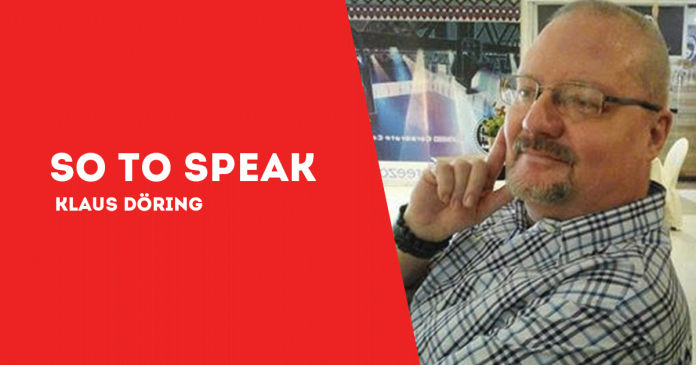
BY KLAUS DÖRING
MY FRIENDS always ask: “How are you always so happy and lucky?” “You always seem so positive.” “It never seems like you have any worries!”
The truth is, obviously I have problems too. Everyone does.
“Our fatigue is often caused not by work, but by worry, frustration and resentment,” said author Dale Carnegie.
But Carnegie believed that by accepting the worst-case scenario, one can find peace. Once you’ve mentally prepared for the worst, any other outcome is a pleasant surprise. This perspective shift can drastically reduce the weight of worry.
“Worry often gives a small thing a big shadow,” says a Swedish proverb.
Some feelings of worry can be healthy, pushing us to find solutions to real and present problems. However, chronic worry, even about things out of our control, can severely impact our mental health.
The German poet Rainer Maria Rilke put it well: “Life is not even close to being as logically consistent as our worries; it has many more unexpected ideas and many more facts than we do.”
Worrying is pointless not only because it rarely makes things better, but also because you’re rarely ever worried about the right thing!
We hardly count our blessings. We enjoy counting our crosses. Instead of gains, we count our losses. We don’t have to do all that counting – computers do it for us. Information is easily had.
Facebook to and fro, back and forth, there and back – how many posts and comments have been posted already with sadness, loneliness, boredom strikes, problems, worries.
Just remember this: Opportunity doesn’t just knock – it jiggles the doorknob. And “your social media online-friend” – the worrier – is with you day and night, at every corner, following your every step. Complaining and grumbling are good excuses, right?
Seniors may experience more anxiety-inducing situations than younger adults, and they may not have as many resources for support. Some people may notice that their anxious thoughts get stronger or more frequent with age, but anxiety is a treatable mental health disorder.
Is social media bad for us? Four billion people, around 50% of the world’s population, use online social media – and we’re spending an average of two hours every day sharing, liking, tweeting and updating on these platforms, according to some reports. That breaks down to around half a million tweets and Snapchat photos shared every minute.
Stress, mood, anxiety, depression, sleep (or better non-sleep), self-esteem – overall, these are social media’s effects on well-being are ambiguous, according to a paper written last year by researchers from the Netherlands.
However, they suggested there is clearer evidence for the impact on one group of people: social media has a more negative effect on the well-being of those who are more socially isolated. (To be continued)/PN



